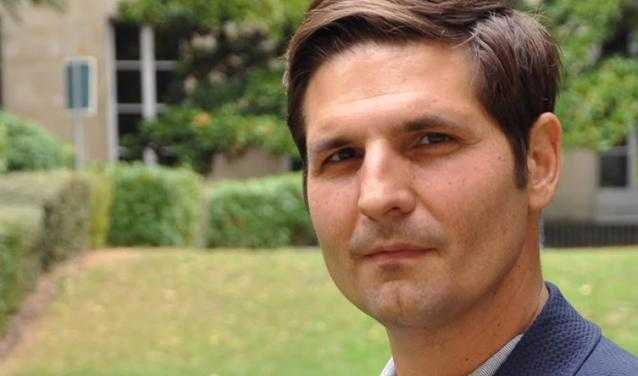Home>“The digital revolution is also a revolution of politics and citizenship”

16.12.2016
“The digital revolution is also a revolution of politics and citizenship”
The Open Government Partnership (OGP) Global Summit was held from 7 to 9 December in Paris. Co-chaired by France, the OGP summit aims to promote government transparency and democratic innovation by harnessing new technologies.
Nearly 80 countries were represented by government and civil society stakeholders, including Sciences Po's School of Public Affairs. Interview with Yann Algan, dean of the School of Public Affairs and researcher in the Department of Economics, who has made issues of data and the public good a central focus of his work.
As an economist, what is it that interests you about the Open Government Partnership (OGP) and its initiatives for transparent governance?
I am excited about this initiative above all as a citizen! It is a tremendously hopeful movement in which communities worldwide are rethinking the transformation of public policy and, together, are building solutions to the crises affecting our traditional democracies and modes of governance. But it also fascinates me as a researcher, especially given the current rise of populism and crisis of democratic representation. Greater transparency of institutions, tax policy and access to education is crucial if public confidence in institutions is to be restored. Democratic innovation is essential to wellbeing; the same policy can have very different effects on citizen satisfaction depending on the degree to which citizens participated in its design and implementation.
How can digital technology reconcile citizens with politics?
The digital revolution is not just a technological and economic revolution. It’s also a revolution of politics and citizenship. This revolution is shifting the role of government toward “Public Policy 2.0”, developed jointly by public institutions and citizens on platforms, hence the term "Government as a Platform".
The key driver of this transformation is the capacity of platforms to gather and use data to offer users new services under radically different conditions, which entails co-production with users and businesses. For example, the City of Boston offers a smartphone app for motorists to track potholes while driving and send the data to the council, resulting in substantial savings in road condition monitoring costs. Making data available to as many citizens and businesses as possible can be a source of social progress, innovation and growth.
But the Government-as-a-Platform revolution also entails many challenges. How do we make sure data is protected and used in the public interest?
How do we redefine the contract between citizens and the state? There is a cruel lack of reflection on how institutions are evolving in the face of economic and social transformations in the digital era. When institutions lag behind societal upheavals and fail to guide society toward the common good, we enter into revolutionary periods. The open government summit offers a stimulating opportunity to examine, debate and act in response to these questions.
Does the idea of increasing the transparency of governance and involving civil society resonate with the Sciences Po School of Public Affairs?
It's in the School’s DNA! We offer our students a large number of courses on open government, new forms of public policy-making, and the relationship between ethics, technology and public affairs. But we also use innovative teaching methods that lead students to co-produce solutions with civil society, public administrations and companies through case studies, simulations and incubation projects. Democratic innovation is central to these educational projects.
The #Inventons2017 initiative, which we've just launched in anticipation of the May 2017 presidential election in France, is a perfect illustration. The students are working on a citizen engagement platform to crowdsource the most engaging measures from young people throughout France with the help of Facebook, Make.org and Les Echos Start. With support from Sciences Po faculty, the students will then formulate concrete public policy programmes alongside the young voters. The School of Public Affairs has also created a public policy incubator; students are asked to work with citizens, local government (Paris City Council, regional authorities, etc.) and companies (Facebook, Axa, etc.) to find practicable solutions to citizens' main concerns in areas such as access to public services, housing, sustainable development, education and employment. For example, students are encouraged to develop digital prototypes with the help of designers and coders, which could well lead to the emergence of state startups.
Related links
Learn more about the Sciences Po School of Public Affairs
Big Data, Be Happy. In his research work, Yann Algan shows that big data can help us move towards a more humane economy. Read the interview with Yann Algan.